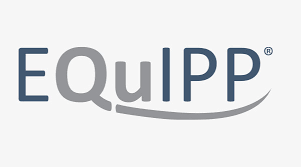The Importance of Quality Measures and How Your Pharmacy Can Be More Engaged
This guest blog is one in a series by sponsors of the 2021 PQA Annual Meeting on emerging trends in medication use quality. The views shared in this series are those of the author and do not reflect any PQA positions.
 A major focus of the healthcare industry has been to create efficiencies that deliver quality patient care while managing rising costs. The implementation of the Medicare Part D Prescription Drug benefit was a catalyst driving the industry to transition from a fee-for-service model to a quality-based patient care model.
A major focus of the healthcare industry has been to create efficiencies that deliver quality patient care while managing rising costs. The implementation of the Medicare Part D Prescription Drug benefit was a catalyst driving the industry to transition from a fee-for-service model to a quality-based patient care model.
As part of the Part D implementation, the Centers for Medicare and Medicaid Services began using a five-star quality rating system (Medicare Part D Star Ratings) to evaluate and incentivize health plans on the performance of their programs in improving patient care quality.
The introduction of standardized medication-related quality measures in Star Ratings has furthered the ability to monitor a patient’s progress on their medications, evaluate health plan performance, and expand pharmacy’s impact in how they care for their patients.
The Pharmacy Quality Alliance (PQA) researches and develops medication-related quality measures that are included in Medicare Part D Star Ratings. Pharmacies can have a direct impact on these measures and support patient health improvement through clinical interventions.
There are two categories of PQA measures that pharmacies can impact: medication adherence (PDC) and clinical use measures. As these measures account for 40% of a health plan’s Summary Star Rating, pharmacy engagement can be critical in supporting a high Star Rating for the health plan.
Alignment with health plan goals and access to patient performance information are critical components for pharmacies to support patient outcomes. Pharmacies need access to the right information to be informed on how their patients are performing against quality measures and which patients may need additional interventions.
The use of data analytics and technology platforms is a method for tracking and recording how patients are performing. Such systems could also serve as a valuable educational tool to inform a pharmacy on the resources that could improve performance on the medication-related quality measures. The EQuIPP® platform is one of those systems for pharmacy. As a web-based platform, EQuIPP® is a neutral intermediary connecting health plans and pharmacies around a common view of patient performance. EQuIPP® integrates data, analytics and pharmacy expertise to make it easier for pharmacies to manage patient performance.
The EQuIPP® platform is one of those systems for pharmacy. As a web-based platform, EQuIPP® is a neutral intermediary connecting health plans and pharmacies around a common view of patient performance. EQuIPP® integrates data, analytics and pharmacy expertise to make it easier for pharmacies to manage patient performance.
The data displayed in the dashboard shows a pharmacy how their patients are doing on the eligible quality measures based on adjudicated pharmacy claims data. The Patient Outliers feature highlights the pharmacy’s opportunities for performance improvement. Patient level details provide information to pharmacies that can help shape the pharmacy’s strategy for patient engagement.
For health plans, the use of platforms such as EQuIPP® allows them to evaluate how their members are being cared for at the pharmacy level. EQuIPP® creates transparency for plans to understand that pharmacies can go beyond dispensing to provide clinical services to improve performance on quality measures. In addition, health plans have the opportunity to consider pharmacy as part of patient’s care team to improve the quality of life of local communities.
The value of quality measurement is established in healthcare and will continue to grow. The more that pharmacies are engaged on quality measures to improve patient care, the better their opportunities wider to partner with health on future clinical opportunities to create even greater impact on care.
Brittany Boyd, MHA, CPhT, is Senior Manager of Pharmacy Training and Support at Pharmacy Quality Solutions (PQS)
